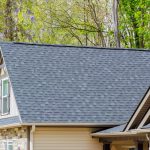As you know, the first step to achieving a “green” home is to have efficient insulation. You might already be considering investing in heat pumps, solar water heating, solar panels, and another green energy source, but really, you should first work on improving your home’s insulation. This is to make sure that you are not wasting energy and that you are able to maximize your use of natural resources. If you overlook this step, you could end up purchasing a powerful system for a very high price just to cover the energy requirement of a home that is poorly insulated.
Insulation is considered among the most efficient ways to save energy at home. It keeps your house warm during the cold season and cools during summer. It is estimated that in a year, a three-bedroom semi-detached home can save up to 500 dollars on energy bills just by installing loft and cavity wall insulation.
Insulation keeps our home at your desired temperature all year round, providing protection against the extreme cold during winter and excessive heat in summer. It is also a good way to minimize noise pollution. A house that is properly insulated is really energy efficient and requires very little additional heating.
The amount of money you’ll save by properly insulating your home will greatly depend on various factors like the size of your house and the type of insulation you have. How old your house is will also matter. You generally won’t need any planning permission for fitting insulation measures and they’ll pay back so it is really a smart investment.
Modern houses are often built to excellent insulation standards, but older houses usually need a lot of work. If you live in a house that is a few decades old, don’t worry as there are still options for you to improve your home’s energy efficiency.
You can choose to insulate your doors, windows, floors, walls, and roof. Perhaps the most important is the wall because, in a typical home, the walls lose about 30 to 40 percent of heat. The roof accounts for about 25% of heat loss, while the windows and doors are responsible for about 20%. The last one you need to worry about is the floor.
Types of Insulation
Wall Insulation (Either Cavity Wall Insulation or Solid Wall Insulation)
Roof Insulation (Warm Loft or Cold Loft)
Window and Door Insulation
Floor Insulation
Important Benefits of Quality Insulation
Comfort
Cost-savings
Fire, Mould, and Insect Resistance
Energy Conservation
If you want to be sure that your home’s insulation is efficient, you can give us a call and we can check it out for you. We can also re-insulate your attic while we’re replacing your roofing!





